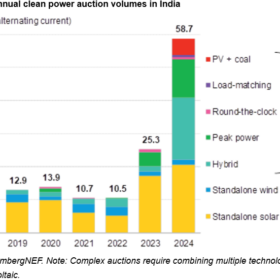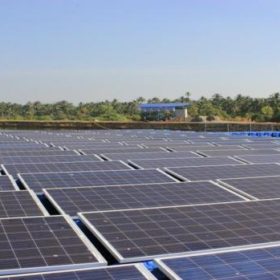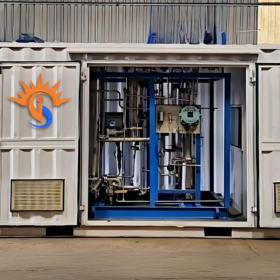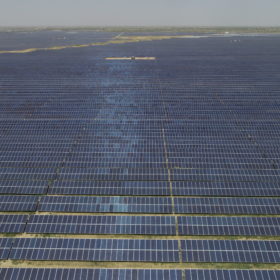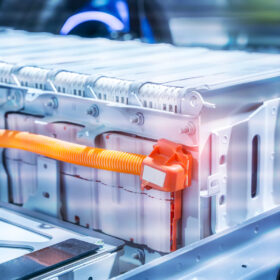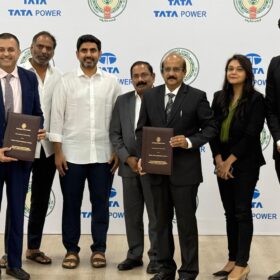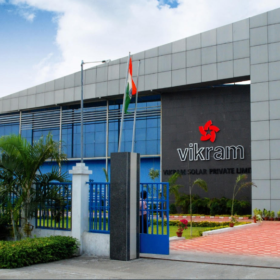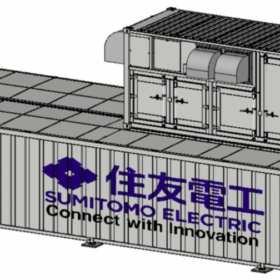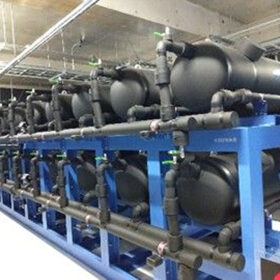India’s annual clean power auctions hit 59 GW in 2024
2024 marks the second consecutive year in which India more than doubled its annual renewable auction volumes, says a new report by BloombergNEF.
NTPC Group to invest INR 96,000 crore in Chhattisgarh
NTPC Ltd will invest in building 4.2 GW of nuclear, 1.2 GW of pumped storage and 2 GW of renewable energy projects in Chhattisgarh.
Group Surya secures EPC package for solar hydrogen microgrid in Ladakh
Surya International has won EPC package for a solar-hydrogen-BESS based 200 kW microgrid at Chushul, Ladakh. The project will supply round-the-clock renewable power in off-grid defense locations under extreme climatic conditions.
CERC adopts tariff for SECI’s 1.2 GW ISTS-connected solar PV power projects with energy storage systems
The tariff adoption by Central Electricity Regulatory Commission (CERC) is a critical regulatory requirement under the Electricity Act and power purchase agreements. It provides regulatory certainty to the entire bidding process and ensures the sanctity of the discovered tariff, paving the way for the successful bidders to proceed with project execution and financial closure.
Global battery industry enters new phase, says IEA
The industry will reach the 1 TWh demand milestone in 2024, with China producing more than three-quarters of the batteries sold globally. The concentration of the production chain in the country has led to a fall in costs and a possible technological shift with the focus on LFP batteries. Cooperation between countries can be strategic to diversify the battery production chain and create sustained demand, assesses the International Energy Agency.
Tata Power signs MoU to develop 7 GW of renewable energy projects in Andhra Pradesh
Tata Power Renewable Energy Ltd has signed a Memorandum of Understanding (MoU) with the Government of Andhra Pradesh to jointly explore opportunities for the development of up to 7 GW of renewable energy projects, including solar, wind, and hybrid projects with or without storage solutions.
The Hydrogen Stream: BGR Tech partners alkaline electrolyzer manufacturer Stargate for green hydrogen projects in India
BGR Tech will integrate Stargate’s alkaline electrolyser stacks with its in-house developed balance-of-plant to execute green hydrogen production projects in India.
The role of battery energy storage systems in sustainable data centers
While many data centres have started using solar power as part of their energy sources, they still depend on grid energy because of regulatory issues like discom regulations and banking policies. To enhance the use of green energy and lessen reliance on fossil-fuel-based grid electricity, combining battery energy storage systems (BESS) with hybrid solar and wind power systems is a practical solution.
Vikram Solar to enter solid-state battery manufacturing
Indian PV manufacturer Vikram Solar will launch a 1 GWh fully integrated solidstate cell and battery facility, expandable up to 5 GWh.
Sumitomo Electric launches vanadium redox flow battery with 30-year lifespa
Sumitomo Electric’s new system comes in three versions, providing up to 10 hours of storage. It achieves improvements in output and energy density, through component enhancements, thereby reducing cost and physical footprint.
